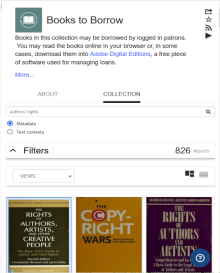What Google wants - UK copyright skirmish looms
The UK government's Intellectual Property Office (IPO) proposes to make it legal to use copyright-protected works for machine learning - that is, training so-called "artificial intelligence" systems - without permission. It announced this in response to a consultations on copyright and so-called "artificial intelligence". We'll quote the IPO's announcement of a proposal to change UK law on text and data mining (TDM) in full:
The Government has decided to introduce a new copyright and database right exception which allows TDM for any purpose. The Government will identify suitable legislation to make the required changes in due course. …
Rights holders will no longer be able to charge for UK licences for TDM and will not be able to contract or opt-out of the exception. The new provision may also affect those who have built partial business models around data licensing. However, rights holders will still have safeguards to protect their content. The main safeguard will be the requirement for lawful access. That is, rights holders can choose the platform where they make their works available, including charging for access via subscription or single charge. They will also be able to take measures to ensure the integrity and security of their systems.
In a nutshell: Google is due to get what it wants – a blanket exception to authors' rights in the UK allowing it to copy (or, rather, to continue to copy) what it wants without asking. We can't help suspecting that the rest of the consultation may have been a smokescreen for that. None of the other changes consulted on (such as granting patents to "artificial inventors") is being proceeded with.
We do not expect actual legislation to be launched very soon. The
Meanwhile in the USA...

The first three books about copyright offered to "borrow" by the Internet Archive.
Book publishers in the USA are suing the Internet Archive over its so-called "digital lending" programme. The Archive's catalogue of past versions of web sites is a wonderful journalistic tool - and, the Freelance is sure, almost wholly unlawful since it is collected by unauthorised copying. The separate book programme makes e-books derived from scans of physical books in university libraries available to the public.
The core of the publishers' case is that this particular activity is in no real sense "lending". The International Federation of Journalists (IFJ), of which the National Union of Journalists is a member, has signed a "friend of the court" (amicus) brief elaborating on the damaging effects on book authors.
![[Freelance]](../gif/fl3H.png)